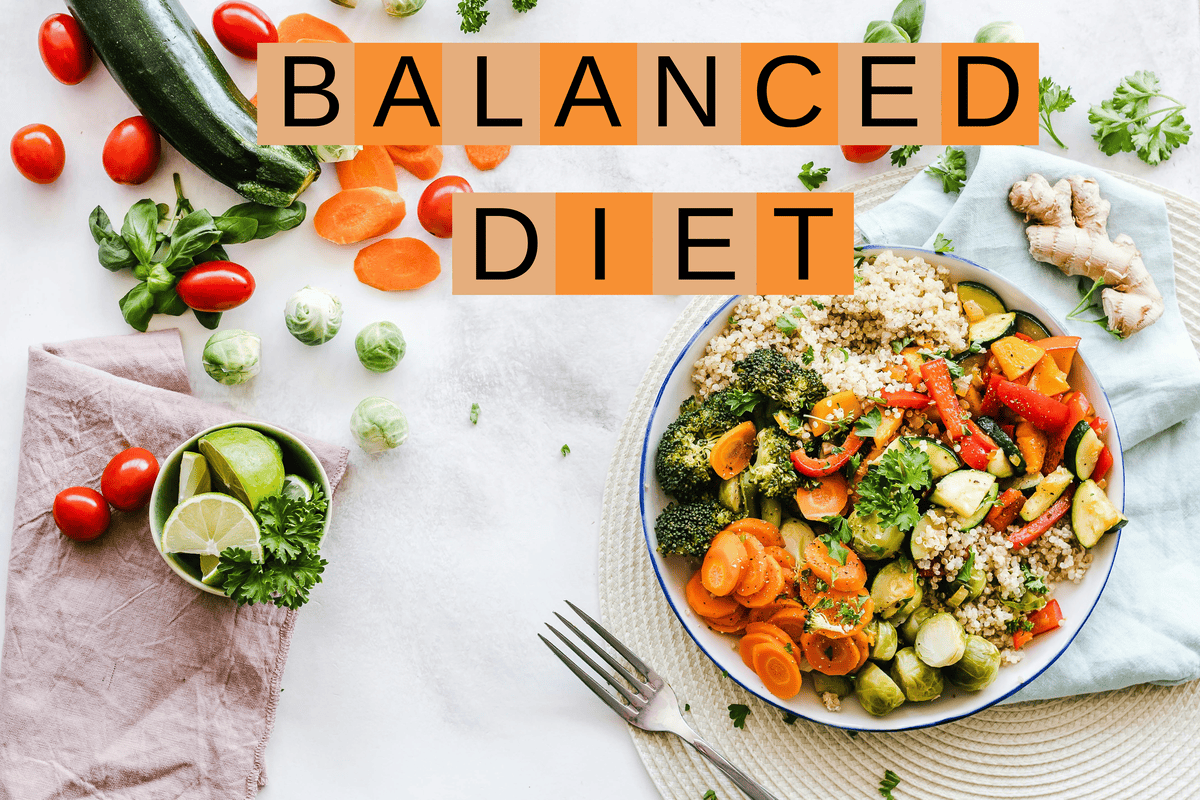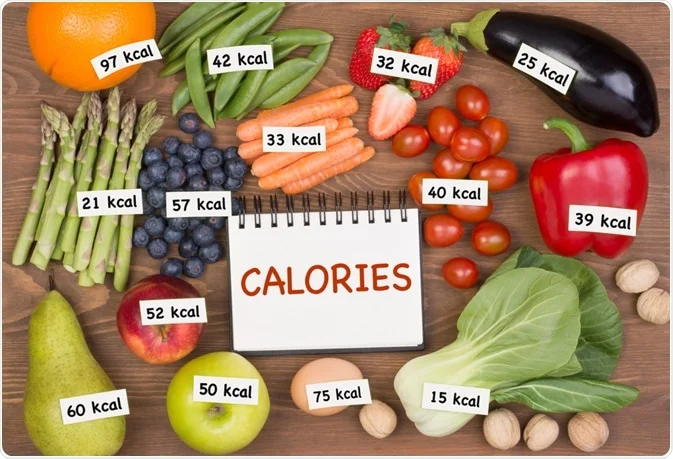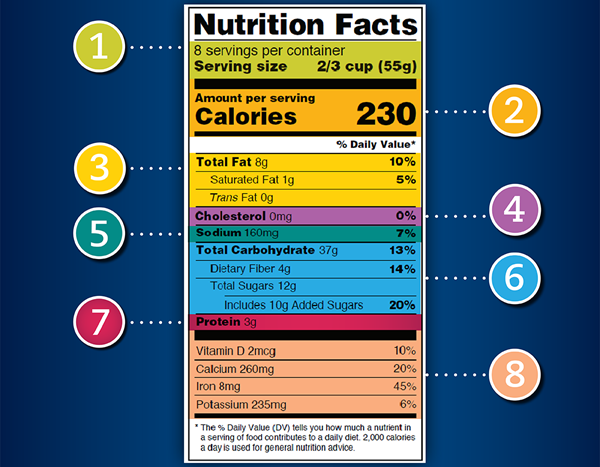When it comes to achieving optimal health and wellness, the foundation is often laid in the foods we eat. A balanced diet is essential not just for maintaining a healthy weight, but for supporting overall physical, mental, and emotional well-being. But what exactly does a “balanced diet” mean, and how can you make sure you’re getting the nutrients your body needs?
In this blog post, we’ll break down the key components of a balanced diet, why they’re important, and how you can incorporate them into your daily routine.

What is a Balanced Diet?
A balanced diet is one that provides the right proportions of nutrients your body needs to function effectively. These nutrients include carbohydrates, proteins, fats, vitamins, minerals, and water. By eating a variety of foods in the right amounts, you can support healthy growth, maintain energy levels, and reduce the risk of chronic diseases such as heart disease, diabetes, and obesity.
A balanced diet isn’t about perfection or restriction—it’s about variety and moderation. Let’s dive into the essential components of a balanced diet and how you can incorporate them into your meals.
1. Carbohydrates: Your Body’s Main Energy Source
Carbohydrates are the body’s preferred source of energy, especially for brain function and physical activity. Carbs are broken down into glucose, which is used by cells for energy.
Sources of healthy carbohydrates include:
- Whole grains (brown rice, quinoa, oats)
- Vegetables (sweet potatoes, leafy greens, peas)
- Fruits (berries, apples, bananas)
- Legumes (beans, lentils)
It’s best to focus on whole, unprocessed sources of carbs rather than refined carbs like white bread or sugary snacks, which can cause blood sugar spikes and crashes.
2. Proteins: Building Blocks for Your Body
Proteins are crucial for repairing tissues, building muscles, and supporting immune function. They also play a role in producing hormones and enzymes that regulate metabolism.
Good sources of protein include:
- Lean meats (chicken, turkey)
- Fish and seafood
- Plant-based proteins (tofu, tempeh, edamame, legumes)
- Eggs and dairy products (milk, yogurt, cheese)
Aim to include a source of protein at every meal to keep your energy levels stable and your muscles and organs functioning optimally.
3. Healthy Fats: Essential for Brain and Heart Health
Fats are vital for absorbing fat-soluble vitamins (A, D, E, and K), supporting brain function, and providing long-lasting energy. However, not all fats are created equal.
Healthy fats include:
- Avocados
- Nuts and seeds (almonds, chia seeds, flaxseeds)
- Olive oil and coconut oil
- Fatty fish (salmon, mackerel, sardines)
Avoid excessive consumption of trans fats and saturated fats, found in processed and fried foods, as these can raise bad cholesterol levels and increase the risk of heart disease.
4. Vitamins and Minerals: Micronutrients for Optimal Health
Vitamins and minerals may only be needed in small amounts, but they play crucial roles in maintaining overall health, from immune function to bone health. A variety of fruits, vegetables, and other whole foods can help ensure you’re getting the right balance of micronutrients.
Key vitamins and minerals include:
- Vitamin C (supports immunity, found in citrus fruits, bell peppers, broccoli)
- Vitamin D (important for bone health, found in fortified foods, sunlight, fatty fish)
- Calcium (strengthens bones and teeth, found in dairy, leafy greens, fortified plant milks)
- Iron (important for oxygen transport in the blood, found in red meat, beans, spinach)
Eating a colorful variety of fruits and vegetables is one of the best ways to make sure you’re getting a range of essential vitamins and minerals.
5. Water: Staying Hydrated
Water is often overlooked but is essential for every cell in your body. It aids in digestion, regulates body temperature, helps transport nutrients, and flushes out waste. Staying hydrated also improves energy levels, mental clarity, and physical performance.
Tips for staying hydrated:
- Drink water throughout the day, not just when you’re thirsty.
- Include water-rich foods in your diet like cucumbers, watermelon, and oranges.
- Limit sugary beverages and excessive caffeine, as they can lead to dehydration.
A good rule of thumb is to aim for 8 cups (64 ounces) of water per day, but your hydration needs may vary based on your activity level and climate.
6. Fiber: The Unsung Hero for Digestive Health
Fiber is a type of carbohydrate that the body cannot digest, but it plays an important role in promoting good digestion, stabilizing blood sugar levels, and supporting heart health.
High-fiber foods include:
- Whole grains (brown rice, oats, quinoa)
- Legumes (lentils, beans)
- Vegetables (broccoli, carrots, spinach)
- Fruits (apples, pears, berries)
Aim for at least 25-30 grams of fiber per day, and try to get it from a variety of plant-based foods.
Putting It All Together: Building a Balanced Meal
A balanced meal should ideally include a combination of carbohydrates, protein, healthy fats, and fiber, with a variety of vitamins and minerals from fruits and vegetables. A simple way to build a balanced plate is by following the “MyPlate” model, which recommends:
- Half the plate filled with fruits and vegetables
- A quarter of the plate with lean proteins
- A quarter of the plate with whole grains
- Healthy fats on the side or incorporated into cooking
Tips for Maintaining a Balanced Diet
- Plan ahead: Preparing meals and snacks ahead of time ensures you always have healthy options available.
- Eat in moderation: Balance is key—enjoy treats, but try to make them an occasional indulgence rather than a daily habit.
- Be mindful of portion sizes: Eating the right balance of nutrients is important, but so is portion control to avoid overeating.
- Listen to your body: Eat when you’re hungry, and stop when you’re full. Mindful eating can help you tune into your body’s signals and prevent overeating.
Conclusion
A balanced diet is the cornerstone of a healthy lifestyle. By focusing on a variety of whole, nutrient-dense foods and paying attention to portion sizes, you can give your body the fuel it needs to thrive. Remember, it’s not about perfection—it’s about making better choices consistently over time. Start with small changes, and gradually build habits that will support your long-term health.
By nourishing your body with the right nutrients, you’re not just fueling your physical health—you’re investing in your overall well-being. So take it one step at a time, and enjoy the journey toward better health!




